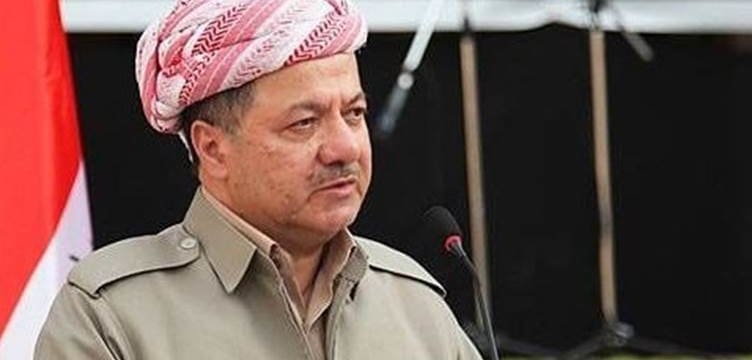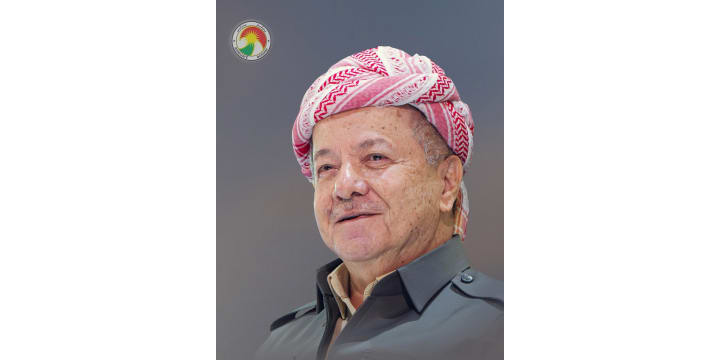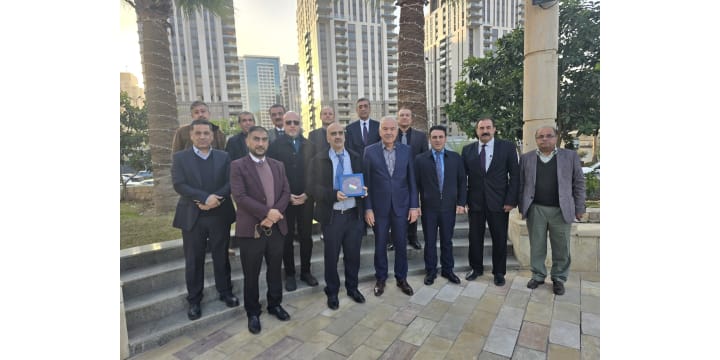
The impact and consequences of the Lausanne Agreement on the fate of the Kurdish people are incalculable and full of disaster, deprivation, marginalization and denial.
President Barzani's speech at the first meeting of the Kurdistan Diaspora Confederation in Lausanne
Dear representatives and members of the Kurdistan Diaspora Confederation
Dear guests
You are very welcome
I would like to thank the organizers of this important meeting. The presence of a significant number of Kurdish political figures and elites to exchange of views on a historical event in a historical place is an important and necessary step. We are gathered here on the 100th anniversary of the Lausanne Agreement.
The impact and consequences of the Lausanne Agreement on the fate of the Kurdish people are incalculable and full of disaster, deprivation, marginalization and denial. The main victim of this agreement was the Kurdish people. Because the fundamental rights and will of the people who have been rooted in the territory and geography of the region for thousands of years were not respected. The Lausanne Agreement always means oppression, deprivation and the beginning of a dark era in Kurdish memory.
The Treaty of Sevres, signed three years before the Treaty of Lausanne in August 1920, allowed the Kurds to enjoy the right to independence, which is a legitimate and absolute right of any nation. The Lausanne Agreement brought the dark and injustice to the fate of the Kurdish people, and was linked to the fate of the states among which they divided.
The consequences and effects of the Lausanne Agreement did not bring progress, coexistence and unity for the peoples of the region, especially for the Kurdish people, and led to the imposition of an unhealthy and unnatural reality. The post-Lausanne reality created a very complicated geopolitical situation and opened the door to prolonged instability in the region. The drawing of new borders and the division of Kurdistan gave each part of Kurdistan its own characteristics. Unfortunately, the legitimate rights of the Kurds were not recognized and denied in each part of those countries and denied it's existence. As a result of wrong policy of the regional states, the Kurds began to defend themselves and their identity and a long struggle began that continues to this day. In this conflict, neither the states were able to destroy the Kurdish people nor the Kurds were able to overthrow the states into which the Kurds were divided upon. The peoples of the region as whole lost the peace and stability and lack of progress. A lot of blood was shed and a lot of time and energy were wasted.
Unfortunately, all the states among which Kurdistan was divided in various ways resorted to the plan of demographic change and the policy of denial, repression and dissolution of the Kurdish people. As mentioned, the Kurdish people did not remain silent in the face of this oppression and took the path of struggling, uprising and protests in different parts of Kurdistan. The fate of the part of Kurdistan that was annexed to the Iraqi state was full of disaster and tragedy. In the 20th century, Iraqi governments even implemented plans to dissolve the Kurdish people within the framework of the policy of degradation, deportation, Anfal, chemical attacks and genocide.
However, the Kurdish people and the Kurdish liberation movement did not give up in the face of the brutal behavior of the Iraqi regimes and bravely confronted the inhuman and chauvinistic policies of the Iraqi governments. However, there have been more opportunities for agreement and efforts to resolve the Kurdish issue in Iraq than in other countries, and the Kurdish liberation movement has grown more in that part of Kurdistan.
This unhealthy reality of a century that has caused damage and instability tells us that both sides (both the regional states and the Kurdish parties) must review their programs and strategies. Instead of war and tension, think of a democratic and peaceful solution. Accordingly, the problems of each part must be resolved according to its own characteristics and circumstances within the framework of dialogue and peaceful and democratic means.
It is a great pleasure that the centuries old conflict between the governments of the region and the Kurdish people, has not become a national conflict between Kurds and other nations in the region,, and the Kurds have always had great friends and sympathizers among the nations of the region. The main problem of the Kurdish people has been with the regimes, wrong policies, repression and dictatorship, not the nations of the region. Let us not forget that dealing with the bad consequences of Lausanne and correcting the mistakes is not only on the shoulders of the Kurdish people, but also the regional states, powers and countries that have influence in the international equations to engage in good faith to solve problems.
The Kurdish diaspora can play a great role in the political, social and scientific centers of their countries, in order to introduce the Kurdish cause, convey the truth and defend the rights of the Kurdish people and maks more friends to support our cause. Certainly, this is a sacred duty and the fulfillment of this duty requires the brotherhood, partnership and unity of all of you. In this task, they must give up narrow interests and see Kurdistan above all other interests.
I hope that this important meeting will have fruitful results, provide recommendations and clarity on how to deal with the impact and consequences of the Lausanne Agreement.
I wish you success.
Thank you very much and stay safe
Masoud Barzani
27 May 2023
* Shiva Barzani read the speech on behalf of His Excellency President Masoud Barzani

